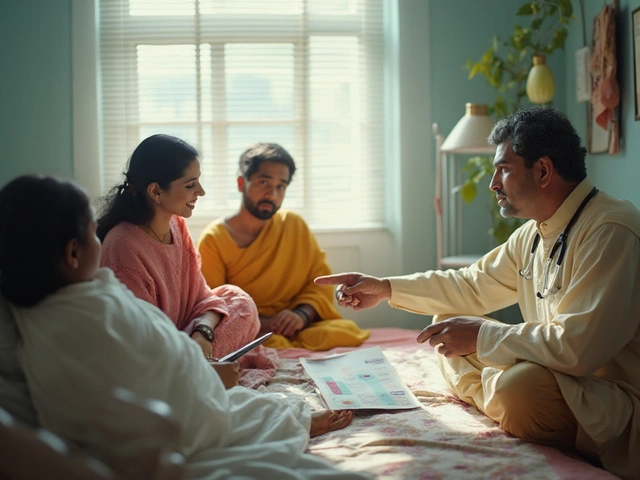Overtherapy: When Too Much Treatment Becomes Harmful
Ever left a doctor’s office feeling like you were prescribed a whole pharmacy? That’s a classic sign of overtherapy – the habit of giving patients more treatment than they actually need. It sounds good in theory – more care equals better outcomes – but the reality is a lot of extra meds, tests, and procedures can do more damage than good.
Why does overtherapy happen? Doctors often feel pressure to act, patients expect a quick fix, and the healthcare system sometimes rewards more procedures. Add in the fear of missing a dangerous condition, and you’ve got a perfect storm for unnecessary care. The result? Higher costs, more side‑effects, and a longer road to real recovery.
How to Spot Overtherapy in Your Own Care
First, ask yourself if each test or medication has a clear purpose. If a doctor orders an MRI for a simple backache without red‑flag symptoms, that’s a red flag. Beware of “just in case” prescriptions – antibiotics for a viral cold, for example. If you’re being sent to multiple specialists for the same issue, pause and ask why each one is needed.
Second, pay attention to side‑effects. More drugs mean more interactions, and you’ll notice things like fatigue, stomach upset, or even confusion. If you’re feeling worse after a new treatment, it might be time to question whether it was necessary.
Practical Steps to Reduce Overtherapy
Bring a partner or friend to appointments. A second set of ears can catch vague explanations or overly aggressive treatment plans. Write down every recommendation and ask, "What will happen if I skip this?" If the answer is "nothing" or "minimal risk," you might be able to decline safely.
Ask for evidence. A reputable doctor should be able to point to guidelines or studies that back up a test or medication. If they can’t, that’s a cue to get a second opinion. Online resources like the Indian Council of Medical Research (ICMR) or international bodies also list when certain tests are truly warranted.
Finally, advocate for lifestyle changes before jumping to pills. Simple steps – better sleep, balanced diet, regular movement – often solve issues that medicines mask. When you combine these habits with a clear conversation about what’s essential, you cut down the noise of overtherapy.
Remember, more care isn’t always better. By staying curious, asking questions, and focusing on evidence‑based treatment, you protect yourself from unnecessary risks and keep your health journey on track.

Can Too Much Therapy Be Harmful? What You Need to Know
This article digs into whether too much therapy can actually backfire. We’ll look at how frequent sessions might get in the way of real-life growth, how relying too much on therapists can mess with confidence, and what warning signs to watch for. Readers will get honest tips on finding the right therapy balance for themselves. It’s a down-to-earth guide for anyone wondering if more therapy always equals more healing.

Can Chemotherapy Cure Stage 4 Cancer?
Nov, 24 2024

Best Mail-Order Pharmacies: Who's Leading the Pack?
Mar, 19 2025


